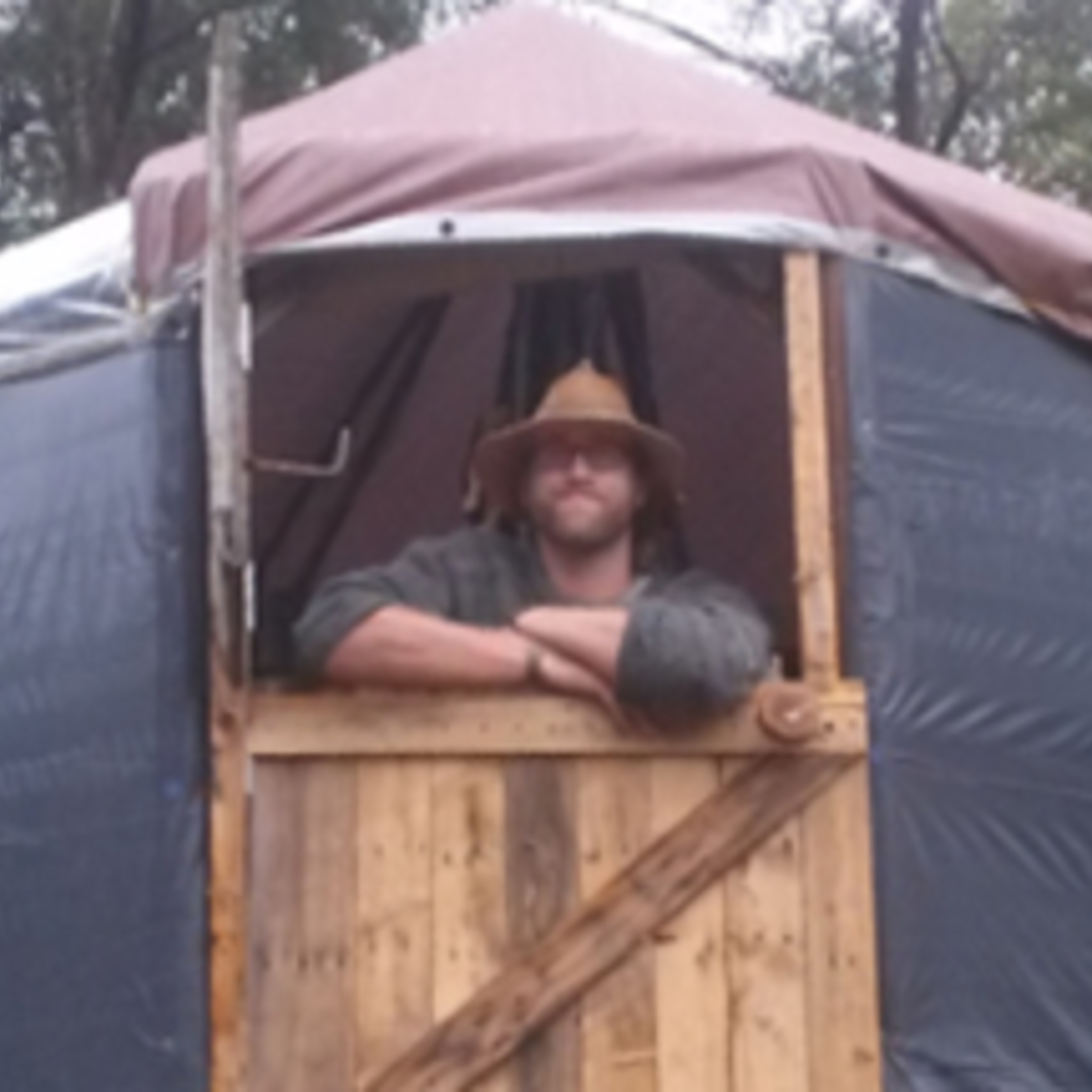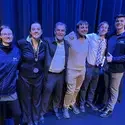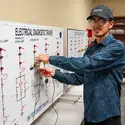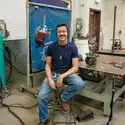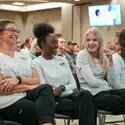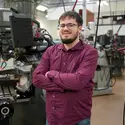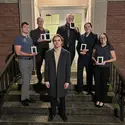In the Fall 2015 semester, a group of College of Western Idaho (CWI) Biology students had the opportunity to evaluate their impact on the environment. Molly Wolk's science, literature, and environment class was assigned a lifestyle analysis project that required students to track their activity in two of the following categories: electricity, water, heating/cooling, driving/fuel consumption, and the locality of food. One student saw the project as more than another homework assignment. It was perfect timing for him to experiment with a lifestyle change.
David Draper chose to analyze his impact in all categories, while also adding a category of his own; participation in a system of goods and services. The second week he rode a bike everywhere and ate only wild foods that he harvested. In an effort to further reduce his carbon footprint he constructed and moved into a yurt, which has no heat, electricity, or running water; although Draper did still have access to a house for personal hygiene needs.
The idea of constructing and living in a yurt had been in the works for a while. He says the lifestyle analysis project just happened at the right time. He was introduced to passive solar energy in a biology class a few semesters ago. Draper says he began contemplating an experiment utilizing the same techniques.
The yurt was built in a way that optimizes sun exposure and retains the heat absorbed. The walls are made up of two layers of 3mm thick black plastic (due to its low albedo) with a one inch air gap between them. The roof is set at an angle that maximizes surface area while still being able to shed water effectively. He made the overall diameter nine feet because he needed to make it as small an area as possible, for heat retention, while still accommodating his needs.
"Honestly this experience has been liberating," says Draper. "It has put things into perspective as far as what my basic necessities are. People often talk about the need to 'unplug' from time to time but living that way is truly fulfilling- at least it is for me."
Prior to the analysis Draper tried to live conscientiously, eating wild foods on a regular basis and riding his bike more often than not. He says the transition into the yurt felt organic. Draper still lives in the yurt and since the project he has put more emphasis on riding his bike rather than taking the bus.
"This experience has been wonderful. I would encourage everyone to take this class as well as Gary Heller's environmental science class regardless of their degree pathway. Many people never take the time to learn about these topics or take the journey of meta-cognition when it comes to humanities place in the biosphere. Both Molly and Gary teach these concepts exceptional well and I thank and applaud them.”
Read David's Complete Analysis
Published: January 11, 2016
